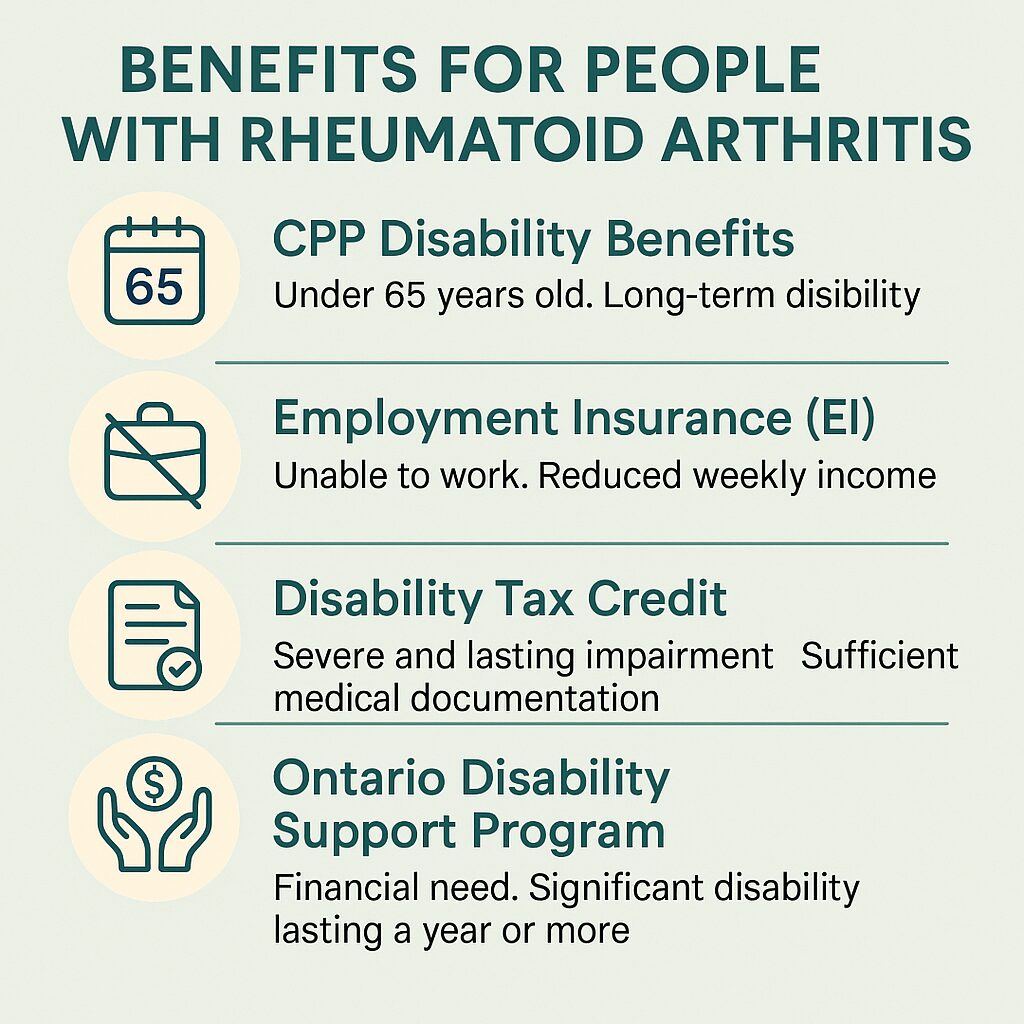Is Rheumatoid Arthritis a Disability? Find Out!
Key Takeaways
- Rheumatoid arthritis is a chronic autoimmune disease: It causes the immune system to attack joint tissues, leading to pain, stiffness, and fatigue.
- Rheumatoid arthritis is a disability in Canada: It can make it very hard to do daily tasks and work, which means that people may be eligible for support and accommodations.
- Eligibility for disability benefits varies: Individuals with RA may qualify for disability benefits based on their specific circumstances.
- Management strategies are essential: Management of RA includes therapies such as chiropractic care, massage therapy, and acupuncture to alleviate symptoms and improve quality of life.
Living with rheumatoid arthritis (RA) raises an important question: is arthritis a disability? RA can make easy tasks seem impossible because of the constant pain, stiffness, and tiredness it causes. This can make it hard to keep up and be independent every day. Without proper support and recognition of your condition, you may feel isolated and misunderstood, struggling to navigate a world that doesn’t always accommodate your needs.
This article discusses the conditions that make it a disability, helps you determine if you might be eligible for benefits, and gives you helpful advice on dealing with your RA symptoms.
What is Rheumatoid Arthritis?
Rheumatoid arthritis is a chronic autoimmune disease where the body’s immune system mistakenly attacks its tissues, particularly the lining of the joints. Common areas affected include hands, wrists, feet, ankles, knees, shoulders, and elbows. RA causes inflammation, leading to several symptoms, including joint pain and stiffness, swelling and tenderness in affected joints, fatigue and general weakness, and occasional fever.
According to Public Health Canada, approximately 374,000 Canadians are living with diagnosed RA, which represents about 1.2% of the population. While anyone can develop RA, it’s less common in younger individuals. So, if you’re worried about getting arthritis in your 20s, it’s less likely but still possible.
Is Rheumatoid Arthritis A Disability
The Canadian Human Rights Act and provincial human rights laws qualify rheumatoid arthritis as a disability. Those living with RA may find it difficult to do their job or everyday tasks. They should not be discriminated against at work and should be able to get reasonable help to do their job.
Chances Of Getting Disability For Arthritis
The chances of getting disability for arthritis vary based on several factors, including the severity of the condition and its impact on daily tasks. RA symptoms often get worse over time, causing more pain, stiffness, and loss of joint function. This decline can make it very hard for people to do daily tasks or keep their jobs, which could mean they are eligible for disability benefits.
Those who want to get long-term disability benefits must show that their RA symptoms make it impossible for them to do their job or any other job that would be a good fit for their education and experience.
Government Grants For Arthritis Sufferers
Rheumatoid arthritis is a disability in Canada, meaning people diagnosed with it may be eligible for benefits. While there are no government grants for arthritis sufferers, there are disability benefits programs that you can apply for.
Ontario Disability Support Program (ODSP): This program offers financial assistance and support to individuals with disabilities who are in financial need or wish to work but require support.
Canada Pension Plan (CPP) Disability Benefits: Individuals with severe and prolonged RA that prevents them from working may qualify for CPP disability benefits. This program provides long-term financial support for those who have contributed to the CPP and are under 65 years old.
Employment Insurance (EI) Sickness Benefits: If RA symptoms temporarily make working impossible, individuals may be eligible for EI sickness benefits, which offer financial assistance for up to 15 weeks.
Disability Tax Credit (DTC): The DTC is a nonrefundable tax credit for those whose RA severely impacts daily functioning. It can help reduce income tax owed and be claimed retroactively for up to 10 years.

